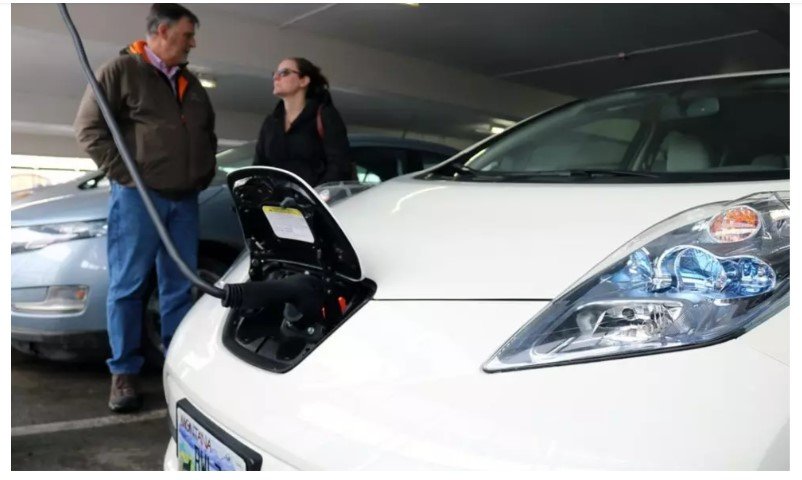Comparing Car Insurance Quotes for Electric Vehicles

Comparing Car Insurance Quotes for Electric Vehicles
More and more people are switching from gas-powered cars to electric ones as the demand for electric vehicles (EVs) continues to grow. EVs have many benefits, such as lower emissions and lower fuel costs. However, it can be challenging to figure out how to cover these cars. Car insurance quotes for electric cars are often different from those for regular cars because of things like the value of the car, how much it costs to fix, and features that are only available on electric cars. This piece will talk about the different parts of electric car insurance quotes and how they stack up against regular car insurance quotes.
Understanding the Unique Aspects of Electric Vehicle Insurance
When it comes to electric cars, insurance companies face unique challenges, which is why they calculate insurance quotes differently. One important difference is how much the car costs. In general, electric cars cost more than gasoline cars because they have more advanced technology, like high-capacity batteries, complex electric motors, and the most up-to-date safety features. Because the insurance company must consider the replacement cost of the car in the event of a total loss, this upfront cost typically results in higher rates. Because of this, electric cars usually have higher insurance rates than regular cars that run on gasoline. However, the lower risk of crashes caused by electric cars’ quietness might make up some of the difference.
The cost of repairs and replacement parts is another thing to think about when getting insurance for an electric car. Electric vehicles (EVs) have unique parts that might cost more to fix or replace than parts in regular cars. For instance, the battery is a crucial and pricey part that could cost several thousand dollars to repair. Some areas may have trouble finding qualified mechanics, which can raise the cost of servicing these cars. Insurers often consider these factors when quoting a price, which may result in drivers paying a higher premium to cover the possibility of having to pay for repairs.
Coverage Options for Electric Vehicle Owners
When looking for car insurance for an electric car, it’s important to look at all of your coverage choices. Just like people who drive regular cars, electric car drivers can choose from different types of coverage, such as liability, comprehensive, and collision insurance. However, some insurance companies offer plans specifically designed for electric cars, which can be beneficial. Some of the things that these policies might cover for EV owners are charging equipment, roadside help, and replacing battery parts.
For instance, many electric car owners purchase home charging stations, which may fall outside the scope of standard car insurance. Some insurance companies offer additional coverage for the setup and maintenance of home charging equipment. Another consideration is that an electric vehicle-specific insurance might cover the cost of battery damage or replacement in the event of an accident involving an electric vehicle. Given the significance of these unique parts, it’s crucial to evaluate the available coverage options to ensure comprehensive protection for both the vehicle and its essential components.
Factors Affecting Insurance Quotes for Electric Vehicles
When you compare insurance quotes for electric cars, the final rate depends on a number of important factors. For example, the make and type of the car can have a big effect on how much insurance costs. Most of the time, smaller, more fuel-efficient EVs like the Nissan Leaf or the Chevrolet Bolt are cheaper to cover than rapid electric cars like the Tesla Model S or the Lucid Air. Insurance companies consider the repair or replacement costs of these cars, often based on their market price and technological features.
The personal information of the driver also influences their insurance rates. Insurance companies consider factors such as age, driving record, area, and yearly mileage to determine the likelihood of a claim. For instance, insurers may charge a driver with a history of accidents more for an electric car due to their perceived higher risk. The driver’s location is also crucial, as certain areas may have higher rates of theft, vandalism, or accidents, potentially leading to an increase in premiums. Another important thing to think about is how many miles you drive each year. More miles on the road can raise the risk of an accident.
Discounts and Incentives for Electric Vehicle Owners
As the number of people who want to buy electric cars grows, many insurance companies now offer discounts and other benefits just for EV users. As a result, these savings can make car insurance a lot cheaper, which is beneficial for people who drive electric cars. Some insurance companies offer discounts to drivers who care about the environment, and others may offer bonuses for cars with advanced safety features or driver-assistance systems, which are popular in electric cars. These savings can help make up for the fact that electric cars may have higher base premiums.
People who own electric cars can also get incentives or refunds from the government for buying or leasing them. These rewards usually change how much the car costs, but they can also change how much insurance costs. For example, some insurance companies may lower the rates of drivers who have taken advantage of government rebates or grants meant to make driving less harmful to the environment. Electric car owners can make sure they are getting the best deal on their insurance premiums by taking these discounts and other benefits into account.
Comparing Insurance Quotes for Electric and Gasoline Vehicles
All of the above factors should be considered when reviewing quotes for car insurance for electric cars and regular cars that run on gasoline. Because electric cars are more expensive to buy and fix, their insurance rates tend to be higher. Drivers can compensate with savings and different coverage. So, if a driver wants to save money on premiums, they might choose a cheaper model of electric car or a policy that gives discounts to drivers who are beneficial for the environment. Some insurance companies also specialize in electric vehicles (EVs) and provide plans tailored specifically for these vehicle owners.
Also, it’s important to get quotes from more than one insurance company to find the best coverage at the best price. As the market for electric cars (EVs) grows, more insurance companies are making policies just for EV owners. This means that there will likely be more competition between insurance companies. With more companies competing, electric car owners may be able to get better coverage at lower costs in the future.
The Future of Electric Vehicle Insurance
As more electric cars hit the road, the insurance business is likely to change to better meet the needs of people who own them. As technology and data collection improve, insurers will be able to give more personalized quotes based on things like how often a driver charges their car or the style of driving they use. Also, as the price of electric vehicle technology goes down over time, the costs of insurance for these cars may go down as well, making them an even better choice for customers.
As insurers learn more about the risks associated with electric cars, they may add more coverage options to electric vehicle insurance in the future. For instance, rules might change to cover more than just the car itself. They might also include things like battery upkeep, charging stations, and even the ability to use renewable energy sources for charging. As more people switch to greener ways to get around, the auto insurance business will change to keep up. For example, owners of electric vehicles will get better coverage at lower rates.
Conclusion
In conclusion, anyone who wants to buy an electric vehicle needs to compare car insurance quotes for them. Electric cars usually have higher insurance rates than gas-powered cars, but the exact cost can change depending on the make and model, the type of driver, and any savings that are available. Electric car owners can make sure they are getting the best value for their money on insurance by looking into different types of coverage and getting quotes from more than one company. As the market for electric cars grows and the insurance business changes, it’s likely that the cost of insurance for these cars will go down. This will give drivers even more reasons to switch to electric cars.






